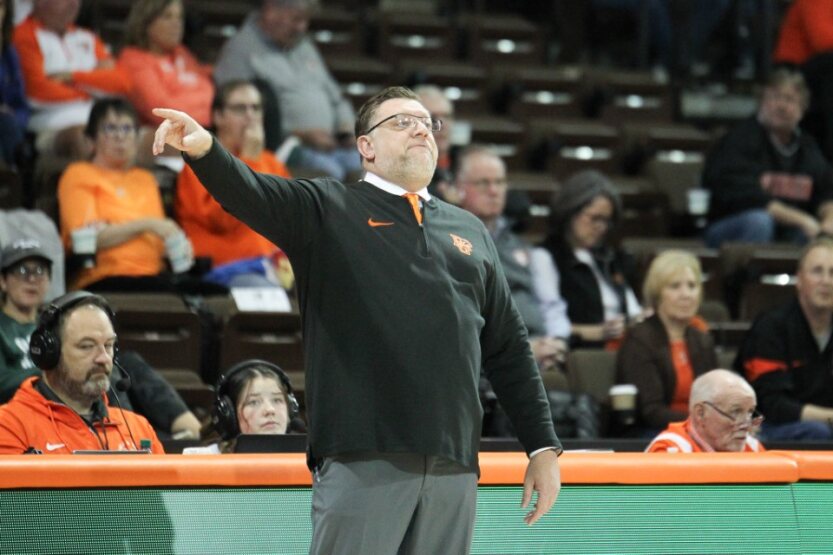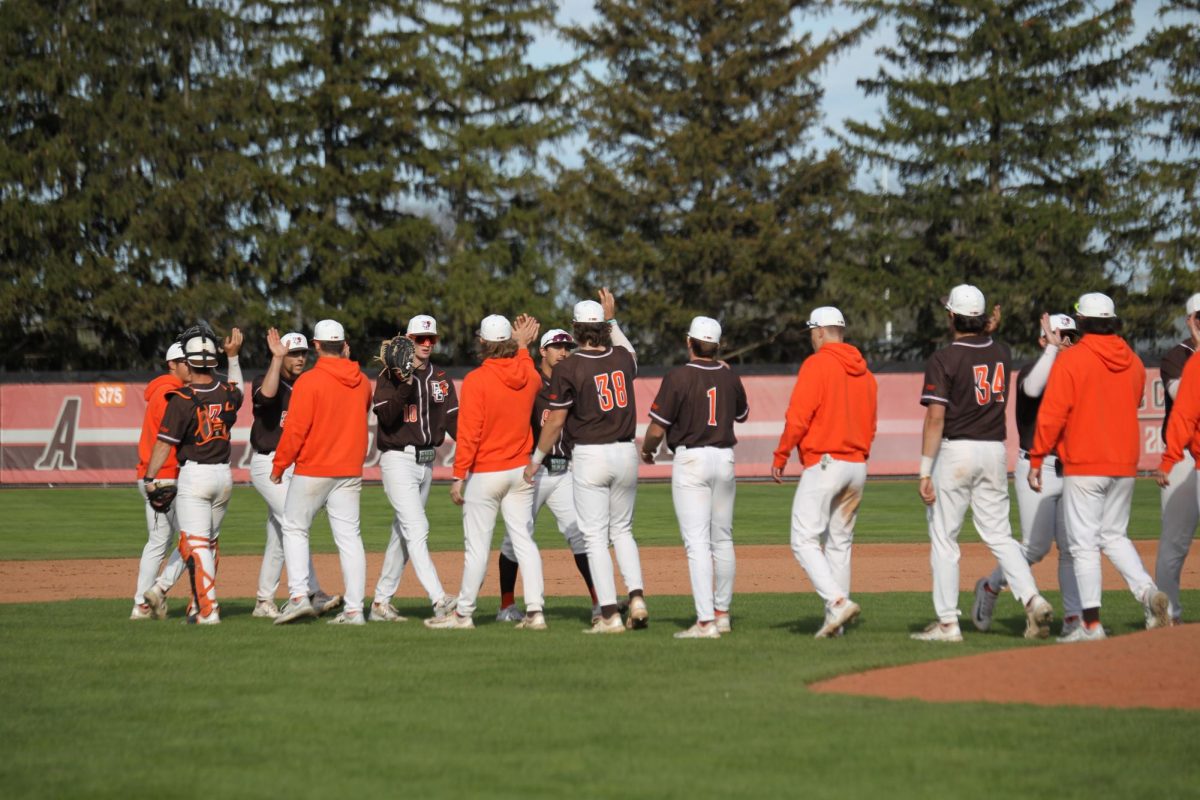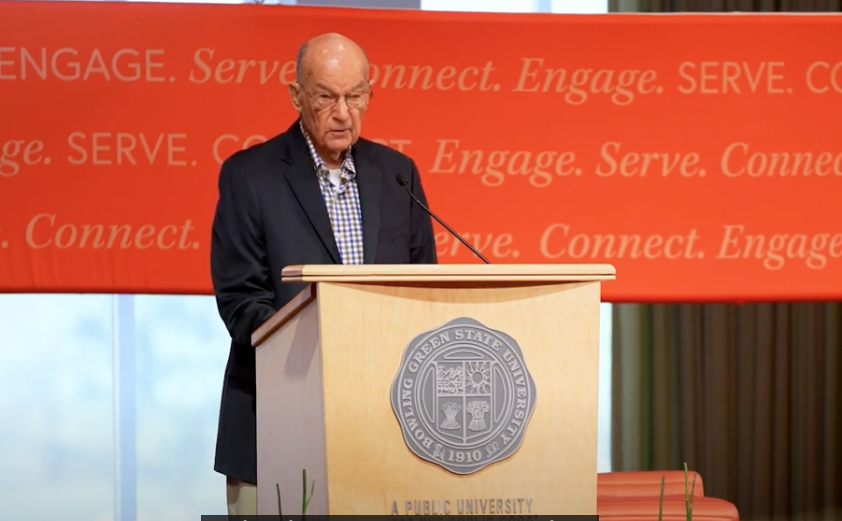Think of a domain of free music, accessible 24 hours a day. Where the quick click of a mouse delivers almost any song imaginable right at your fingertips. Imagine a library of music that can span anywhere from 10 to 10,000 songs. Download whatever you want, whenever you want; this music is free. Sounds great, right? Think again.
With the emergence of popular file-sharing software such as KaZaA and Morpheus, these lyrical loots have been the talk of an ever-going debate over the battle with music piracy.
Since the early summer, the Recording Industry Association of America has been cracking down hard not only on these software systems, but on those who download music as well. According to a recent November 2003 article on CNN.com, 1.4 million households have deleted all music files on their computers since August of this year. Some 260 people are being sued by the RIAA, including a 12-year-old girl and a 71-year-old grandfather. These offenders are expected to pay somewhere around $2,000 to compensate for stolen music files. And I feel these penalties aren’t as harsh as they should be.
File-sharing software has been playing the devil’s advocate in the music world in the past few years. Many people argue that they would rather download a song or two of a band than go out and actually buy the CD. “If people download entire CD’s, that’s wrong, but I think it’s fine if you’re doing it for just one song you like,” argues Bryan Hasselbusch, a part-time student. “I think [downloading music] is good because you can download a few songs from a band to see if you dig their music or not, and then decide whether or not you want the CD.” This would be the ideal case-scenario, but unfortunately, not everyone who downloads music is dependable enough to do this.
Another common complaint and reason why KaZaA and Morpheus have become commonplace on computers everywhere is that CD prices have increased astronomically in the past few years.
“Maybe if CD prices weren’t so high in the first place, the urge to download free music wouldn’t be necessary,” says Jesse Ward, a freshman at BGSU. But before pointing fingers at anyone, let’s take a quick lesson in economics.
According to an article in September 2003 by Kirk Semple of the New York Times, since 1999 there has been a 25 percent drop in CD sales. One can be certain that this is directly correlated with the fact that file-sharing software has become an ever-so-popular presence in the music realm. Since downloading songs is easily done and listening to them is even easier, people would rather steal “free” music than actually go out and buy the CD of the band, singer, group, etc. they are interested in. Since CD sales have been neglected, the recording and retail industry has had to counterbalance this offset by multiplying the price of CD’s.
What needs to be understood is that by keeping music piracy extant, CD prices will continue to climb until more attention is given to the retail aspect of the music market. And that’s exactly where the problem is. People aren’t going to buy CD’s because they are so costly due to the music downloading software, and it is near impossible to rid of the KaZaAs and Morpheuses of the Internet. So in order for the debate on music piracy to stop, one is going to have to give. But who will step forward first?
The war on music piracy is believed to be too difficult to subside. Many people believe that it would be too complex for the RIAA to go after every single file-sharing software user, and this is true. But this does not mean that the issue should be disregarded as trivial. Music piracy affects more people than just the artists that create the music. With such a drop in CD sales, workers in music retail stores everywhere have suffered cutbacks in employment. Those who work in the production area of making CD’s suffer as well, along with those who work in the studio and aide in the production of the band’s music.
Since ending music piracy is just about as difficult as ending the War on Terrorism, some solutions must prevail.
Online opponents to music piracy are even taking action in trying to halt this heated debate of sharing music. “Web players such as Pressplay, Full Audio and Listen.com’s rhapsody are rolling out new interfaces and planning marketing campaigns in the hopes of convincing consumers that it’s better to pay for music than steal it,” says a February 2003 article on MSNBC.com. These music engines are trying to get the word out and educate the public on the hindrance music piracy causes thousands of people in the music industry.
One thing that can be done effectively is to charge a monthly rate for file-sharing software systems. This way, money can be dispersed to artists that rightfully have the copyright over their uniquely engineered music. Another possible solution is to charge a small fee for every song that is downloaded. Or, if people don’t feel it necessary to contribute to the success of the artist they are trying to steal music from, then a cut of recordable CD purchases should be given to artists and production staff that take part in the success of a singer or band.
Although some people may feel that downloading music from artists is wrong, some benefits can be seen in it. “Getting music for free just lets more people like a wider range of bands. I know for a fact that in the punk, hardcore, and emo scenes, downloading music is STRONGLY encouraged and that’s how I would say 30 percent of a band’s fanbase is built,” said Rochelle Sanfilippo, a sophomore at BGSU. “There is no musician out there who has a ton of people downloading their music without them seeing some kind of positive result.”
There seems to be a general agreement that downloading music from bands that are struggling to be heard doesn’t so much prevent them from making sales, but actually promotes the band and encourages a wider audience. Jesse Ward believes that downloading music can be helpful. “I believe downloading music from a band is good for getting music regularly unheard of out there for the masses. That could be very helpful for a band that is trying to get their name out there.”
The debate over music piracy is never-ending, and will continue to be an issue for many more years because the eradication of it is near impossible.
It is tragic to see that true fans are in such dire need to not even contribute to the success of their favorite bands and can just setting for taking their music for free just because it is an easier and cheaper way to hear the music they love.
So, for those who opt to take the easy way out and would rather not pay for the music they obtain, I ask you this: If you are really a true fan of those bands and singers that you are taking music from, wouldn’t you rather see them succeed and profit off of their unique ideas and hard work? True fans don’t steal music; rather, they would take delight in knowing their money is going toward the support of their favorite artist or singer.


















